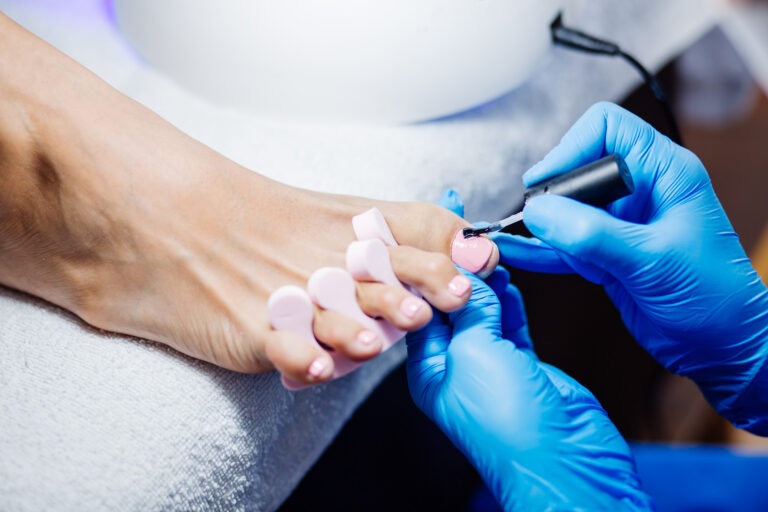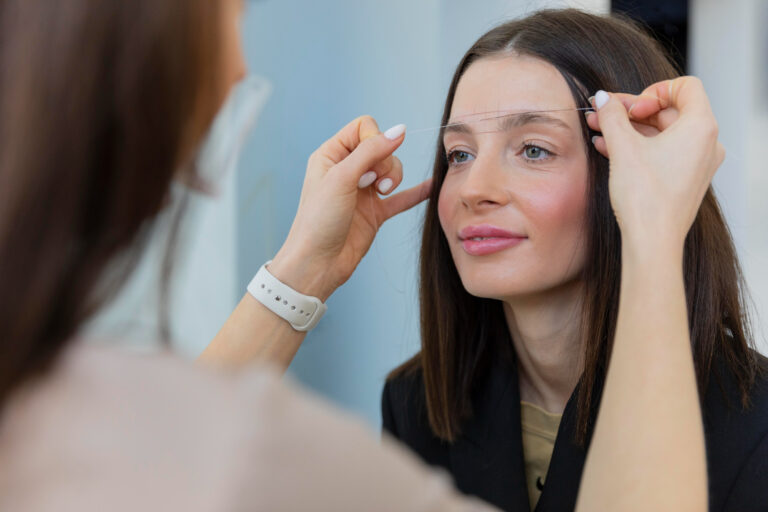Dark spots after sun exposure? At MONLIS Studio in Munich, we explain the causes of pigmentation issues and show how to protect and treat your skin effectively
Tanned skin is often seen as attractive, healthy, and refreshed—but sometimes an unwanted side effect follows sunbathing: dark pigmentation spots that appear irregularly on the face, décolleté, or hands. At MONLIS Studio in Munich, we regularly see clients who are concerned about changes in their skin after vacations or sun exposure. In this article, we explain why these spots appear, who is most at risk, and what can be done about them.
What are pigmentation spots?
Pigmentation spots, also known as hyperpigmentation, occur when the skin overproduces melanin—the pigment that gives skin its color. Melanin is a natural defense mechanism against UV rays, but when overproduced or distributed unevenly, it leads to dark patches—typically on areas most exposed to the sun.
Why do they appear especially after sunbathing?
Sun exposure stimulates melanin production in the skin—this is the body’s natural protection. However, if the skin is already damaged, hormonally influenced (such as during pregnancy or due to birth control or medication), or unevenly pigmented, melanin can accumulate in certain areas. Inflammatory skin conditions such as acne or small injuries can also darken after sun exposure—this is known as post-inflammatory hyperpigmentation.
Risk factors for hyperpigmentation:
Inadequate sun protection
Existing skin conditions or scars
Hormonal changes (e.g., pregnancy, menopause)
Use of certain medications or cosmetics
Applying perfume or essential oils before sun exposure
Skin type (fair or sensitive skin is more prone)
What can be done about dark spots?
At MONLIS Studio, we offer a range of professional treatments specifically designed to reduce pigmentation. These include:
Fruit acid peels: Stimulate skin renewal and help fade surface-level dark spots.
Enzyme peels: Gentle for sensitive skin and ideal for mild discoloration.
Microneedling: Boosts collagen production and improves skin texture, helping pigmentation fade over time.
Brightening serums and skincare products that target melanin production.
Personalized sun protection advice to help prevent further damage.
Can pigmentation spots be prevented?
Yes—prevention is key. Follow these tips:
Apply high SPF (30–50) daily, even on cloudy days
Avoid direct sun exposure during peak UV hours
Wear a wide-brimmed hat and sunglasses
Avoid applying perfumes or essential oils before sunbathing
Use antioxidant skincare with ingredients like Vitamin C or Niacinamide
What to do if the spots have already appeared?
Act quickly. The sooner pigmentation is addressed, the easier it is to treat. Don’t wait too long—especially after a summer holiday, it’s worth visiting our skincare specialists at MONLIS Studio.
We start with a professional skin analysis and recommend personalized treatments based on your skin type and pigmentation level. Our goal is smooth, even-toned, and radiant skin—without unwanted spots.
Dark spots after sunbathing are common—but not inevitable. When you understand, protect, and care for your skin, you can avoid or effectively treat pigmentation. At MONLIS Studio in Munich, our experienced skincare team is here to guide you with proven methods and personal care—so your skin looks beautiful, in every kind of sunlight.
Book your personal skincare consultation or treatment today at MONLIS Studio, and learn how to safely and effectively reduce pigmentation. Your skin will thank you!


